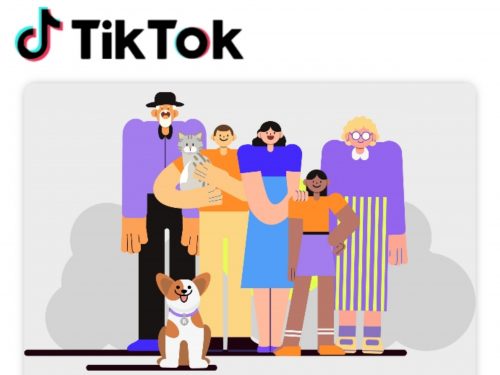
TikTok is advancing our commitment to building for the safety of users by introducing Family Pairing, which allows parents and teens to customize their safety settings based on individual needs. Family Pairing enhances TikTok’s suite of safety tools and complements our work to provide greater access to product features as users reach key milestones for digital literacy. It is part of the company’s continued work toward providing parents better ability to guide their teen’s online experience while allowing time to educate about online safety and digital citizenship.
More than ever, families are turning to internet platforms like TikTok to stay entertained, informed, and connected. That was, of course, happening before COVID-19, but it has only accelerated since the outbreak began and social distancing brought families closer together. The embrace of platforms like TikTok is providing families with joint tools to express their creativity, share their stories, and show support for their communities. At the same time, they are often learning to navigate the digital landscape together and focused on ensuring a safe experience.
With families in mind, TikTok has taken a number of steps over the past year to improve and enhance our teams, policies, controls, and educational resources. TikTok has made its policies more transparent and accessible, grown trust and safety teams, built upon the resources in Safety Center.
Many users start their creator journey at 13 and are introduced to a wider array of app options for download, making it a critical time for teens and their families to learn about digital literacy and smart online behavior. In addition to Family Pairing, TikTok already offers a number of resources to support users on this journey, including educational safety videos and parental guides like Top Ten Tips for Parents.
TikTok also encourages parents to talk with their teens about the code of conduct outlined in Community Guidelines to help them understand what responsible community behavior looks like, how to identify and report content that may be in violation, and what it means to be positive digital community members.
Family Pairing, which will be rolling out over the coming weeks, will allow a parent to link their TikTok account to their teen’s and set controls including:
Screen Time Management: Control how long your teen can spend on TikTok each day. In addition, TikTok has partnered with top creators to make short videos that appear right in the app and encourage users to keep tabs on their screen time. These fun videos use the upbeat tone users love while offering a suggestion to take a break and do something offline, like read a book.
Restricted Mode: Restrict the appearance of content that may not be appropriate for all audiences. Even without Family Pairing enabled, parents can help their teen set Screen Time Management and Restricted Mode by visiting the app’s Digital Wellbeing controls at any time.
Direct Messages: Limit who can send messages to the connected account, or turn off direct messaging completely. With user safety in mind, TikTok has many policies and controls in place for messaging already – for example, approved followers can message each other, and images or videos are not allowed to be sent in messages. Starting April 30, TikTok will be taking those protections one step further as relates to younger members of the community, and automatically disabling Direct Messages for registered accounts under the age of 16.
“TikTok is committed to giving parents insight into, and control over, how their teens use TikTok and helping facilitate important conversations within families about the responsible navigation of digital platforms. We believe these options promote a safer and more trustworthy experience for our users of all ages, but our progress in this area is also never finished. We look forward to working with all our stakeholders as we continuously seek to improve through new features and resources to help our community manage their digital experience,” said TikTok Head Public Policy for the Philippines, Indonesia and Malaysia Donny Eryastha.

